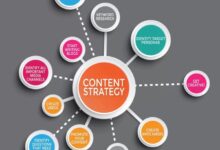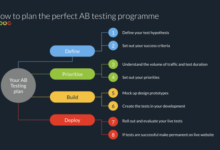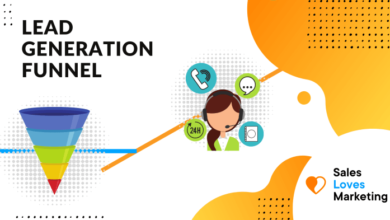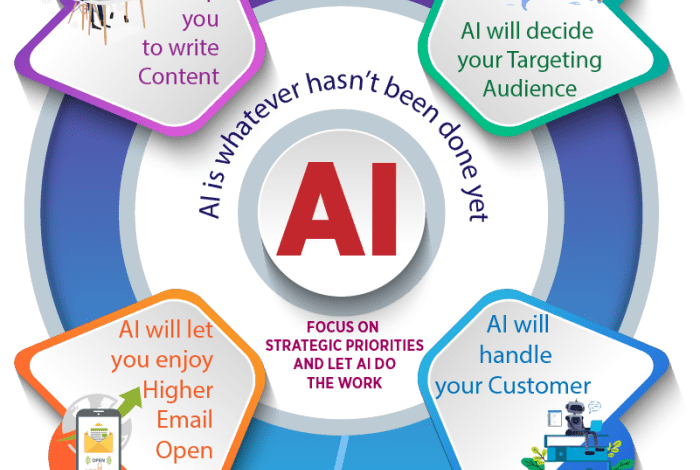
Kicking off with The role of AI in digital marketing strategies, this opening paragraph is designed to captivate and engage the readers, setting the tone research style that unfolds with each word.
AI is revolutionizing the landscape of digital marketing, offering innovative solutions and insights that were previously unimaginable. As businesses strive to stay competitive in a digital world, the integration of AI into marketing strategies has become not just a trend, but a necessity. Let’s delve into how AI is reshaping marketing practices and driving success in today’s dynamic market environment.
The Role of AI in Digital Marketing Strategies
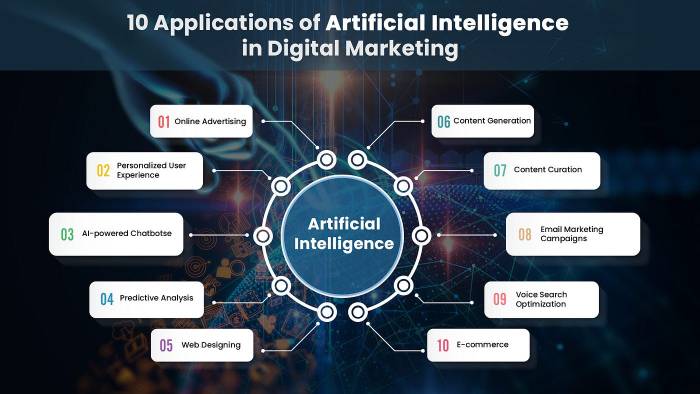
AI has significantly transformed digital marketing strategies by enabling businesses to analyze massive amounts of data, personalize customer experiences, automate tasks, and optimize campaigns in real-time. The integration of AI has revolutionized the way companies interact with their target audience, leading to more effective and efficient marketing efforts.
Examples of AI Applications in Digital Marketing, The role of AI in digital marketing strategies
- AI-powered chatbots: Chatbots use natural language processing to engage with customers, provide support, and assist in making purchasing decisions.
- Predictive analytics: AI algorithms analyze data to predict customer behavior, optimize marketing campaigns, and identify trends for future strategies.
- Personalized recommendations: AI algorithms analyze customer preferences and behaviors to deliver personalized product recommendations, increasing conversion rates.
- Content optimization: AI tools can analyze content performance, recommend changes, and improve strategies to enhance visibility and engagement.
Benefits of Integrating AI into Digital Marketing Strategies
- Improved targeting: AI enables marketers to target the right audience with personalized messages, leading to higher conversion rates and ROI.
- Enhanced customer experience: AI-driven personalization helps create tailored experiences for customers, increasing satisfaction and loyalty.
- Cost efficiency: Automation of repetitive tasks through AI reduces manual intervention, saving time and resources for marketing teams.
- Real-time optimization: AI algorithms can analyze data and adjust marketing strategies in real-time, ensuring campaigns are always optimized for performance.
Personalization through AI: The Role Of AI In Digital Marketing Strategies

Personalization in marketing has become increasingly important in engaging consumers and driving sales. With the help of AI technology, companies can create highly personalized marketing campaigns that cater to the individual preferences and behaviors of their target audience. AI enables personalized marketing in various ways, such as analyzing customer data, predicting consumer behavior, and delivering tailored content in real-time.
AI-Driven Personalization vs. Traditional Marketing Personalization
- AI-driven personalization utilizes advanced algorithms and machine learning to analyze large volumes of data and identify patterns in consumer behavior. This allows for more accurate segmentation and targeting of specific audiences based on their preferences and interests.
- In contrast, traditional marketing personalization relies on manual methods and basic demographics to tailor marketing messages. This approach is less precise and may not effectively capture the individual nuances of each customer.
- AI-driven personalization can deliver real-time recommendations and content adjustments based on consumer interactions, providing a more seamless and personalized experience for the audience.
Success Stories of Companies using AI for Personalized Marketing
- Amazon is a prime example of a company that excels in AI-driven personalization. The e-commerce giant uses AI algorithms to analyze customer behavior and browsing history to recommend products tailored to each individual’s preferences.
- Netflix leverages AI technology to personalize the user experience by recommending movies and TV shows based on viewing history and ratings. This personalization strategy has contributed to increased user engagement and retention.
- Sephora utilizes AI-powered chatbots to provide personalized product recommendations and beauty tips to customers based on their skin type, preferences, and purchase history. This personalized approach enhances the overall shopping experience for consumers.
Automation in Digital Marketing
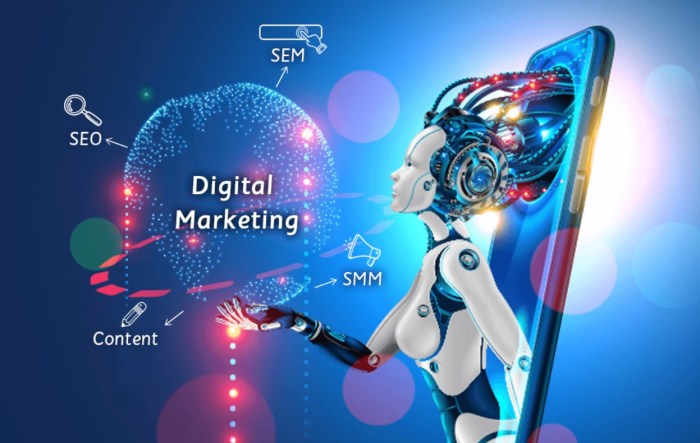
Automation plays a crucial role in streamlining processes and improving efficiency in digital marketing. By leveraging AI technology, repetitive tasks can be automated, allowing marketers to focus on more strategic and creative aspects of their campaigns.
Automated Processes in Digital Marketing
- Automated Email Marketing Campaigns: AI-powered tools can analyze customer behavior and preferences to personalize email content and scheduling, increasing engagement and conversion rates.
- Chatbots: AI chatbots can interact with website visitors in real-time, providing instant responses to queries, qualifying leads, and guiding users through the customer journey.
- Dynamic Ad Campaigns: AI algorithms can optimize ad placements, target audiences, and adjust bids in real-time based on performance data, maximizing ROI for digital advertising campaigns.
- Content Generation: AI tools can generate content such as product descriptions, social media posts, and blog articles, saving time and resources for marketers.
Impact of Automation on Efficiency and Scalability
Automation in digital marketing not only saves time and resources but also improves efficiency and scalability in marketing campaigns. By automating repetitive tasks, marketers can:
- Reach a larger audience: Automated processes allow marketers to engage with a broader audience across multiple channels without increasing workload.
- Improve targeting and personalization: AI-driven automation enables marketers to deliver more relevant and personalized content to individual customers, enhancing customer experience and driving conversions.
- Optimize campaign performance: Automation tools can analyze vast amounts of data in real-time, providing insights to optimize campaigns for better results and ROI.
- Enhance customer retention: Automated processes can nurture leads, follow up with customers, and provide personalized recommendations, increasing customer loyalty and retention rates.
Data Analysis and Insights
Data analysis plays a crucial role in digital marketing strategies, providing valuable insights that help businesses understand their target audience better. Artificial Intelligence (AI) tools have revolutionized the way data is analyzed, allowing marketers to make informed decisions based on accurate information.
Analyzing Data with AI
AI tools are capable of processing large volumes of data at incredible speeds, identifying patterns and trends that might go unnoticed by human analysts. By utilizing machine learning algorithms, AI can uncover valuable insights from multiple data sources, including customer interactions, website traffic, and social media engagement. This enables marketers to gain a comprehensive understanding of consumer behavior and preferences.
- AI tools can segment data to identify specific customer groups based on demographics, behavior, or preferences.
- Through sentiment analysis, AI can analyze customer feedback and social media conversations to gauge public opinion and sentiment towards a brand or product.
- AI-powered analytics can track and measure the performance of marketing campaigns in real-time, providing instant feedback on what strategies are working and what needs improvement.
Predicting Customer Behavior
One of the most significant advantages of AI in data analysis is its ability to predict customer behavior with a high degree of accuracy. By examining historical data and identifying patterns, AI algorithms can forecast future trends and anticipate consumer actions. This predictive capability allows marketers to tailor their strategies to meet the evolving needs and preferences of their target audience.
- AI can predict customer churn by analyzing factors such as purchase history, engagement levels, and customer feedback.
- By analyzing click-through rates and website browsing behavior, AI can predict which products or services are likely to interest individual customers.
- AI algorithms can forecast sales trends and identify opportunities for upselling or cross-selling based on past purchasing patterns.
Optimizing Marketing Strategies
AI-generated insights play a crucial role in optimizing marketing strategies, enabling businesses to make data-driven decisions that maximize their ROI. By leveraging AI tools to analyze data and extract actionable insights, marketers can refine their campaigns, personalize customer interactions, and improve overall performance.
- AI can recommend personalized content and product recommendations based on individual customer preferences and behavior.
- By analyzing customer feedback and sentiment, AI can identify areas for improvement and help businesses enhance their brand reputation.
- AI-driven analytics can optimize advertising spend by identifying the most effective channels and targeting strategies for reaching specific audience segments.
Last Word
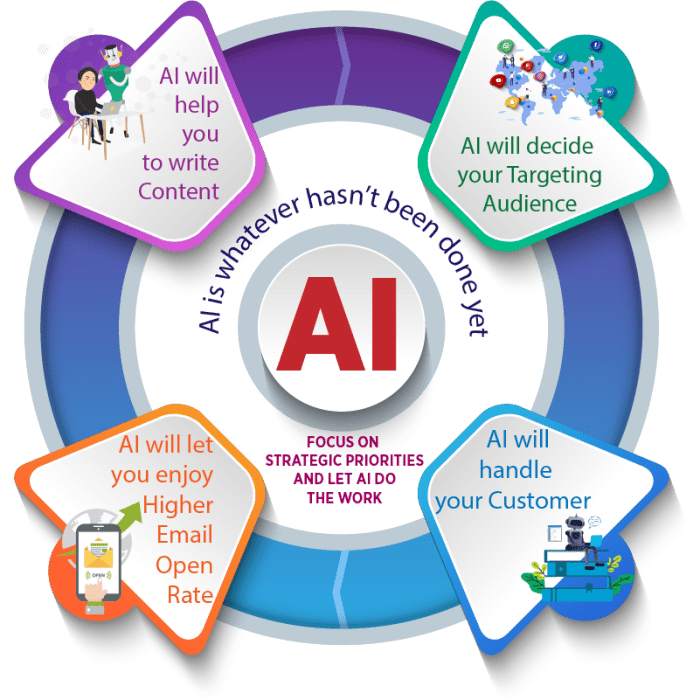
In conclusion, the transformative power of AI in digital marketing strategies cannot be overstated. As AI continues to evolve and improve, businesses that embrace its capabilities are poised to thrive in an increasingly competitive marketplace. By leveraging AI for personalization, automation, data analysis, and insights, companies can unlock new opportunities for growth and engagement. The future of digital marketing is AI-driven, and those who adapt and innovate will lead the way forward.
When migrating servers to a new host, it is crucial to follow a systematic approach to avoid any downtime or data loss. One must carefully plan the migration process, including transferring files, databases, and configurations. For a detailed guide on how to migrate servers to a new host, you can refer to this informative article: How to migrate servers to a new host.
Understanding what a server-side cache is essential for optimizing website performance. By storing frequently accessed data closer to the user, a server-side cache can significantly reduce load times and improve user experience. To learn more about the benefits and functionality of a server-side cache, check out this informative article: What is a server-side cache.
Utilizing a dedicated IP address for your server offers numerous benefits, such as improved security, better email deliverability, and the ability to set up SSL certificates. Having a dedicated IP address can also enhance your website’s credibility and SEO ranking.
To explore the advantages of using a dedicated IP address in more detail, you can read this insightful article: Benefits of using a dedicated IP address.

